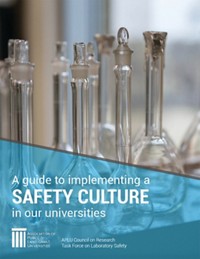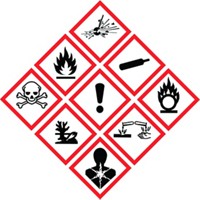Advertisement
Grab your lab coat. Let's get started
Welcome!
Welcome!
Create an account below to get 6 C&EN articles per month, receive newsletters and more - all free.
It seems this is your first time logging in online. Please enter the following information to continue.
As an ACS member you automatically get access to this site. All we need is few more details to create your reading experience.
Not you? Sign in with a different account.
Not you? Sign in with a different account.
ERROR 1
ERROR 1
ERROR 2
ERROR 2
ERROR 2
ERROR 2
ERROR 2
Password and Confirm password must match.
If you have an ACS member number, please enter it here so we can link this account to your membership. (optional)
ERROR 2
ACS values your privacy. By submitting your information, you are gaining access to C&EN and subscribing to our weekly newsletter. We use the information you provide to make your reading experience better, and we will never sell your data to third party members.
Lab Safety
The Importance Of Teaching Safety
May 6, 2013
| A version of this story appeared in
Volume 91, Issue 18
As members of the ACS Presidential Commission on Graduate Education in the Chemical Sciences, we challenge Richard N. Zare’s comment on the inappropriateness of including a recommendation about laboratory safety in our report “Advancing Graduate Education in the Chemical Sciences” (C&EN, March 4, page 51). While admitting that safety is important, Zare states the report “should instead have been about preparing graduate students, about the future.”
What is more important in graduate education than ensuring students complete their research as safe and healthy as the day they entered graduate school? A graduate education is the ideal place to instill the mind-set that if you can’t do research while carrying out the best safety practices, then you shouldn’t do it at all. The recommendation to include safety in the final report was unanimously supported by all commission members.
Chemistry and chemical engineering laboratories are inherently dangerous environments, especially for undertrained and inexperienced graduate students. Their research requires them to carry out many novel chemical reactions with unknown consequences.
The facts are unequivocal. Occupational Safety & Health Administration statistics demonstrate that researchers are 11 times more likely to get hurt in an academic lab than in an industrial lab. There have been serious accidents in academic labs in recent years—including fatalities—that could have been prevented with the proper use of protective equipment and safer laboratory procedures.
Most chemistry and chemical engineering graduate students will find employment in industry. As new hires come on board, many companies spend weeks on remedial safety training before new hires are allowed to work in their labs. This clearly shows that the current state of graduate safety education is lacking and that there is a clear need to address it. If the report is supposed to focus on “preparing graduate students, about the future,” how can this not be a relevant topic?
There is remarkable consistency in safety practices and performance across industrial research labs in the U.S. Even though we may be competitors, we have a common interest to share the best ideas and best practices when it comes to safety. We strive to ensure that all our employees embrace the very best safety practices and the tools to implement them every day. Why would we have a different expectation of academic labs? The ACS report is in fact the ideal place to raise this critical issue, as clearly stated in Conclusion Three: “Academic chemical laboratories must adopt best safety practices.”
William F. Banholzer
Executive Vice President, Ventures, New Business Development & Licensing Chief Technology Officer, Dow Chemical Co.
Midland, Mich.
Gary S. Calabrese
Senior Vice President, Corning Global Research, Corning Inc.
Corning, N.Y.
Pat Confalone
Vice President, DuPont Crop Protection, Global R&D, DuPont Co.
Newark, Del.





Join the conversation
Contact the reporter
Submit a Letter to the Editor for publication
Engage with us on Twitter